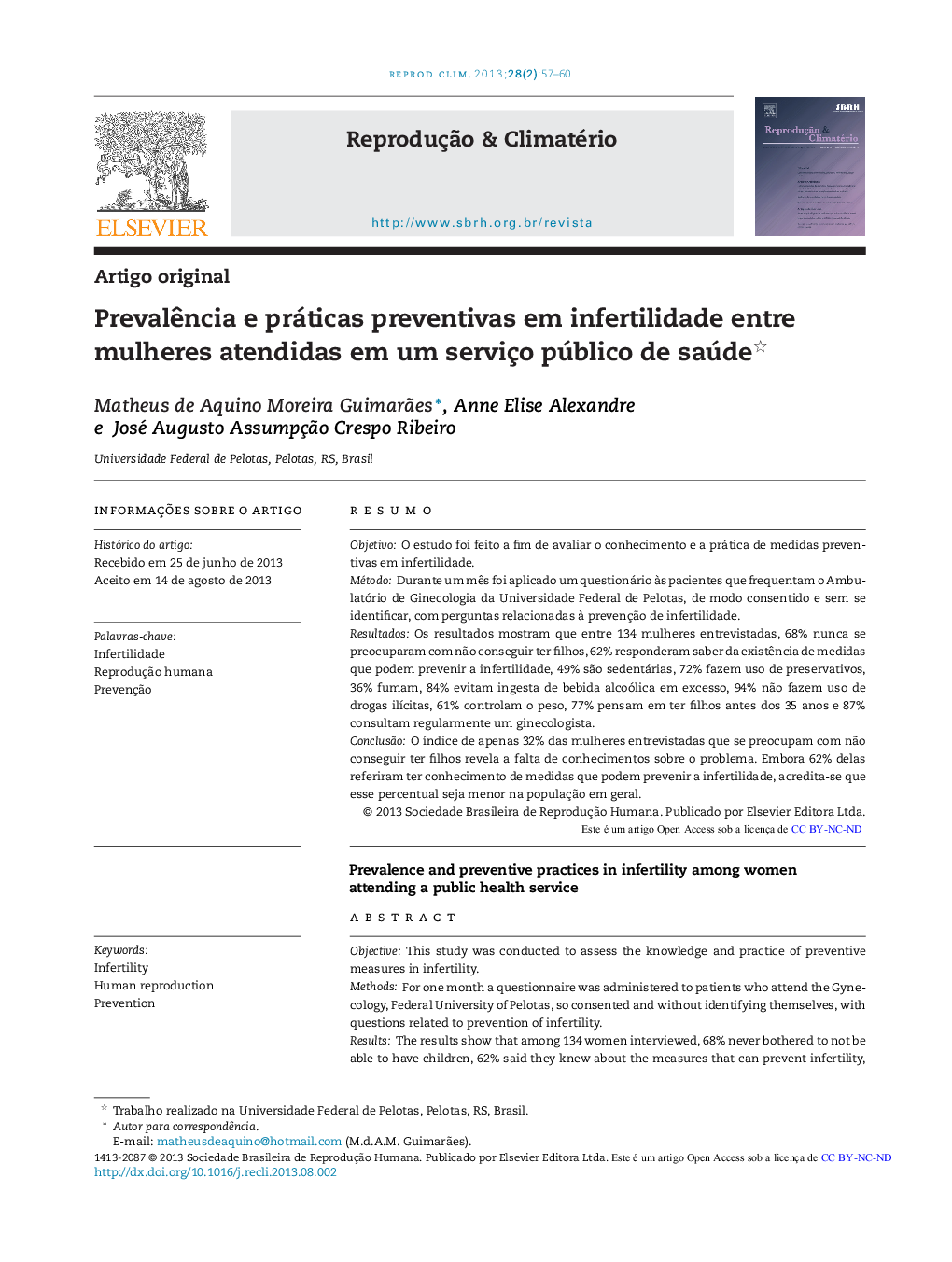| Article ID | Journal | Published Year | Pages | File Type |
|---|---|---|---|---|
| 3969890 | Reprodução & Climatério | 2013 | 4 Pages |
ResumoObjetivoO estudo foi feito a fim de avaliar o conhecimento e a prática de medidas preventivas em infertilidade.MétodoDurante um mês foi aplicado um questionário às pacientes que frequentam o Ambulatório de Ginecologia da Universidade Federal de Pelotas, de modo consentido e sem se identificar, com perguntas relacionadas à prevenção de infertilidade.ResultadosOs resultados mostram que entre 134 mulheres entrevistadas, 68% nunca se preocuparam com não conseguir ter filhos, 62% responderam saber da existência de medidas que podem prevenir a infertilidade, 49% são sedentárias, 72% fazem uso de preservativos, 36% fumam, 84% evitam ingesta de bebida alcoólica em excesso, 94% não fazem uso de drogas ilícitas, 61% controlam o peso, 77% pensam em ter filhos antes dos 35 anos e 87% consultam regularmente um ginecologista.ConclusãoO índice de apenas 32% das mulheres entrevistadas que se preocupam com não conseguir ter filhos revela a falta de conhecimentos sobre o problema. Embora 62% delas referiram ter conhecimento de medidas que podem prevenir a infertilidade, acredita-se que esse percentual seja menor na população em geral.
ObjectiveThis study was conducted to assess the knowledge and practice of preventive measures in infertility.MethodsFor one month a questionnaire was administered to patients who attend the Gynecology, Federal University of Pelotas, so consented and without identifying themselves, with questions related to prevention of infertility.ResultsThe results show that among 134 women interviewed, 68% never bothered to not be able to have children, 62% said they knew about the measures that can prevent infertility, 49% is sedentary, 72% makes use of condoms, 36% smoke, 84% avoid ingestion of alcohol in excess, 94% did not use illegal drugs, 61% controls weight, 77% think having children before 35 years and 87% of the group regularly consults a gynecologist.ConclusionSince only 32% of women are concerned with can’t have children, reveals a lack of knowledge about the problem. Although 62% of them reported that he is aware of measures which can prevent infertility, it is believed that this percentage is smaller in the general population.
